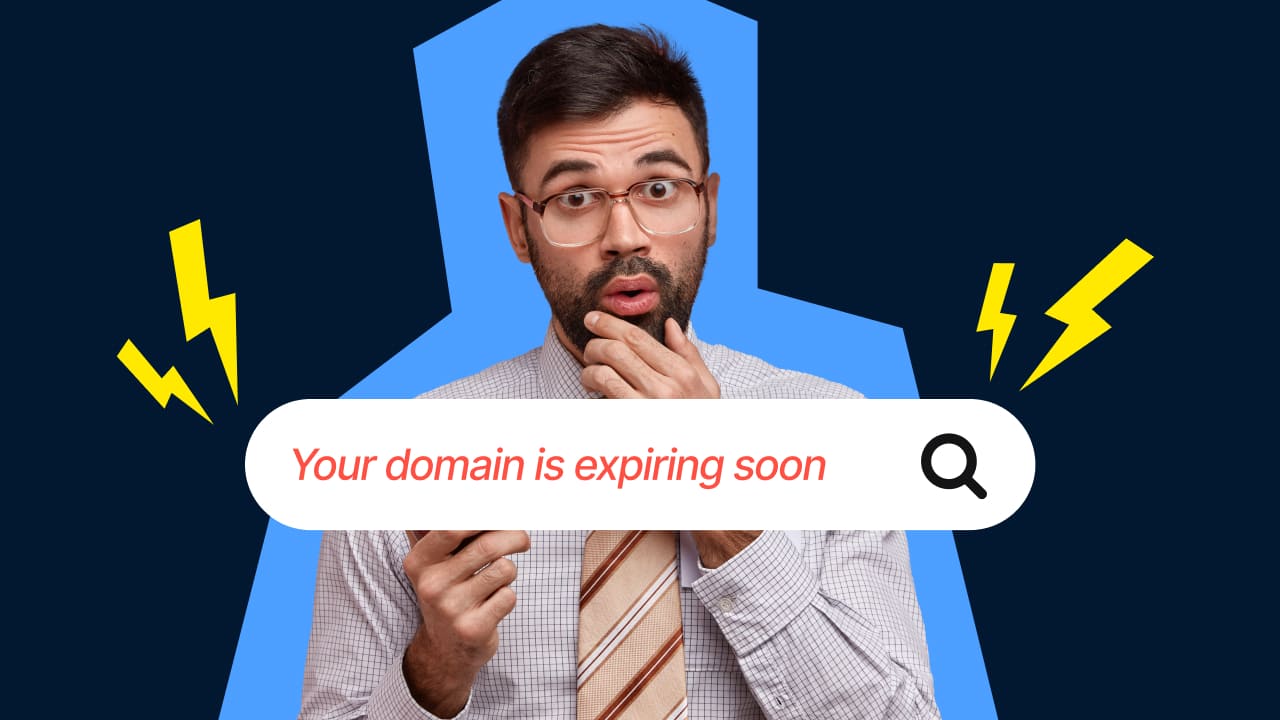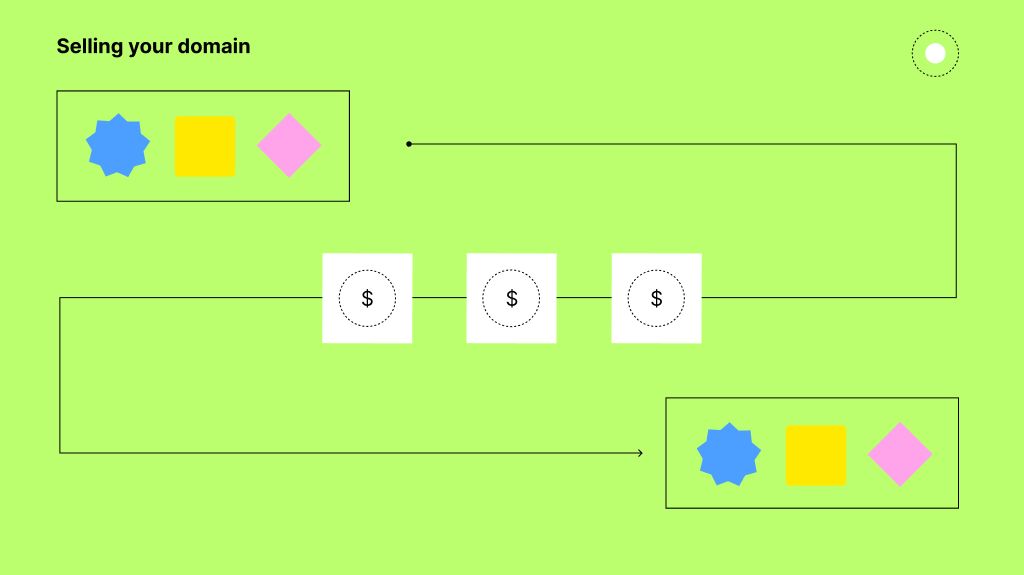When you decide to build a new website, you need a good domain name. With more and more websites being registered every day, it’s sometimes difficult to secure the perfect domain name registration.
The Do’s and Don’ts of Registering Your Domain Name
- Do not use numbers
- Do not limit your TLD options
- Do not forget about your social media handles
- Do not register hard to spell domains and register any likely typo domains
- Do not use homophones
- Do not register a very long domain
- Do carefully consider how the domain words combine
- Do check the domain registration history
- Do check the domain content
- Do check to see if a similar domain exists
- Do not let someone else register your domain
- Do not leave yourself exposed to spam
- Do not forget to renew your domain name(s)
Trying to get around this problem can lead to creative solutions and unforeseen mistakes. Below, you will find the common mistakes people make that you should avoid when you choose a new domain name.
Do not use numbers
Sometimes people are tempted to use numbers to replace words, such as “2” for “to”. Whilst this will create a shorter domain name, many users may find it difficult to predict your domain name registration terminology. And often prospects will not undertake exhaustive searches when searching for your domain. If you are looking to create shorter domain names, consider registering for newly released .au direct domain names. Unsure of what it is? Read about what .au domain names can do for your business here.
Do not limit your TLD options
A TLD, top-level domain, is the last segment in your domain name – the part that follows the final dot. For domain name registration in Australia, it’s best to register the .com.au TLD. It is a common mistake not to consider registering the same domain across multiple TLDs. When you’re ready to expand your business in later years, the relevant TLD may have already been snapped up. It’s also an essential consideration for brand protection purposes. Capturing the .com – and perhaps .co.nz and .co.uk – versions of your domain from the start can save headaches down the track. For more information about the value of multiple domains, read our recent article about the benefits of registering more than one domain name.
Do not forget about your social media handles
When registering your new domain name, you will likely want to create an online presence across social media. Make sure you consider the social media naming rules so your users can intuitively switch from one platform to the next.
Do not register hard to spell domains and register any likely typo domains
 Wherever you can, avoid hard to spell domain names. Sometimes that is not possible, particularly if your brand name is tricky. In that case, it’s a good idea to undertake domain registration for alternative spellings or likely typos. You can then use a 301 redirect to push that traffic to your actual site, so you don’t lose that traffic.
Wherever you can, avoid hard to spell domain names. Sometimes that is not possible, particularly if your brand name is tricky. In that case, it’s a good idea to undertake domain registration for alternative spellings or likely typos. You can then use a 301 redirect to push that traffic to your actual site, so you don’t lose that traffic.
Do not use homophones
Homophones have the same pronunciation as other words but have different meanings and spelling. A couple of examples are poor and pour and die and dye. Unless it is apparent what your domain name should be, such words are likely to confuse your site visitors. You should avoid them if possible, or you should register two domain names, one with each word, and then redirect one to the other.
Do not register a very long domain
Every extra character in your domain name is one more opportunity for it to be misspelt. Long domain names are difficult to remember and to read with no spacing.
Do carefully consider how the domain words combine
One of the most common ways to make a mistake with your website is to combine multiple words to create a phrase you didn’t intend. Businesses such as partnerstalking.com.au and childrenswear.co.uk have all discovered this problem. Carefully consider how your words connect before you incur a domain name registration cost.
Do check the domain registration history
 You may choose to register a domain name that has previously expired because the name makes sense for your business. If you register such a domain, you will likely inherit its history. Sometimes that history is good and sometimes not so good. The domain name may have been associated with scam/phishing pages, illegal trade, or spreading malware. In such a case, your site may appear blacklisted by specific browsers or services, visitors may get warnings, and search engines may not list the domain or rank it poorly. These are domain names to avoid.
You may choose to register a domain name that has previously expired because the name makes sense for your business. If you register such a domain, you will likely inherit its history. Sometimes that history is good and sometimes not so good. The domain name may have been associated with scam/phishing pages, illegal trade, or spreading malware. In such a case, your site may appear blacklisted by specific browsers or services, visitors may get warnings, and search engines may not list the domain or rank it poorly. These are domain names to avoid.
Do check the domain content
While checking your domain registration history, it can be helpful to see what content the domain has pointed to in the past. Browse that content for anything that might be an issue. In particular, look to see if any old, archived content might conflict with your brand or message.
Do check to see if a similar domain exists
Registering a domain similar to an existing domain, especially a competitor's one, will only confuse your visitors. Suppose the other website is much older than yours. In that case, it is also likely that you will get a lot of negative comments as people will think you are trying to steal some of the traffic the other site generates by using an almost identical domain. They will not care if you registered a similar domain by chance and not intentionally.
Do not let someone else register your domain
If you’ve never gone through the process before, you might think that registering a domain is a daunting prospect. However, by letting someone else (such as a web design agency) register your domain, ultimately, they own that URL. The best practice is to register the domain yourself – that way, everything is under your control.
Do not leave yourself exposed to spam
Your contact details are made publicly available through a searchable Whois database when you register a domain. To minimise spam and telemarketing calls, consider investing in a domain privacy service. Domain privacy ensures your domain contact details remain private and hidden from public view.
Do not forget to renew your domain name(s)
When you buy a domain name, you’re just renting it for a specified period. What this means is that you need to remember to renew your lease. If you forget, there’s the chance that a competitor could register your domain once it goes back on the market. Look into setting up auto-renewal for your domains, and never allow them to lapse. Getting the right domain can take a bit of effort, but once you find one that ticks all the boxes, it can be a massive boost to your online presence. Find out more from Australia’s leading domain name registrar.

.webp)


